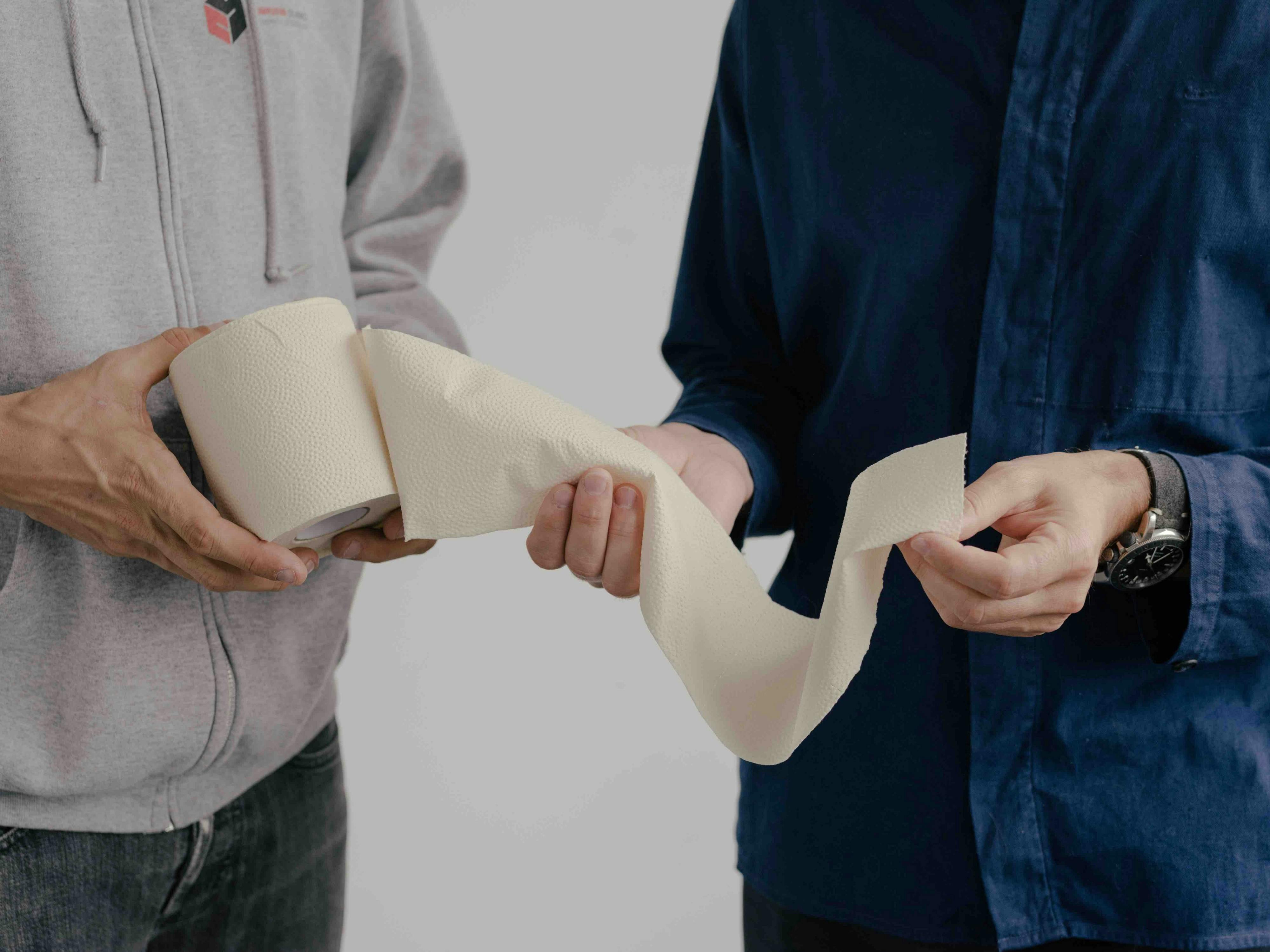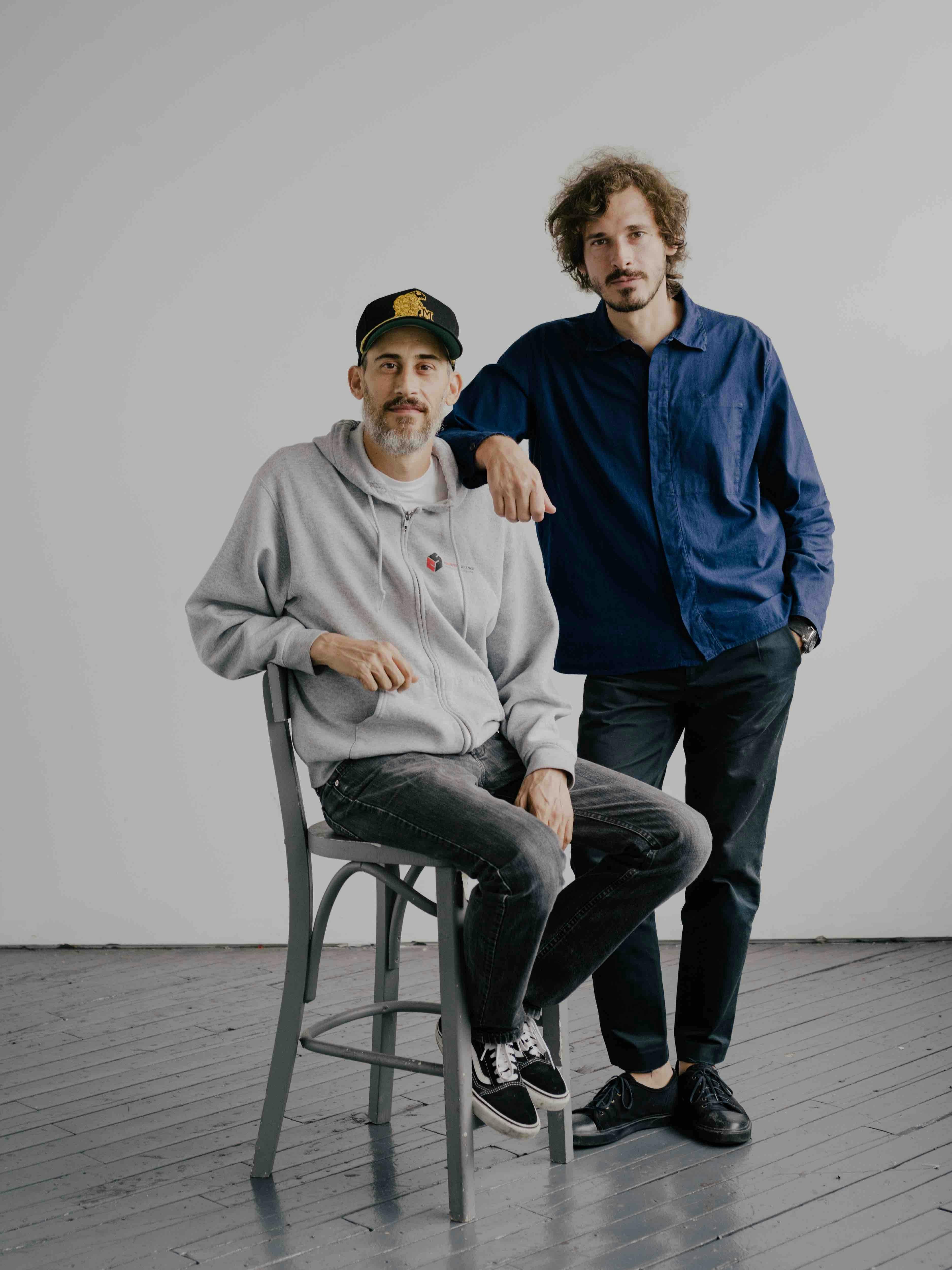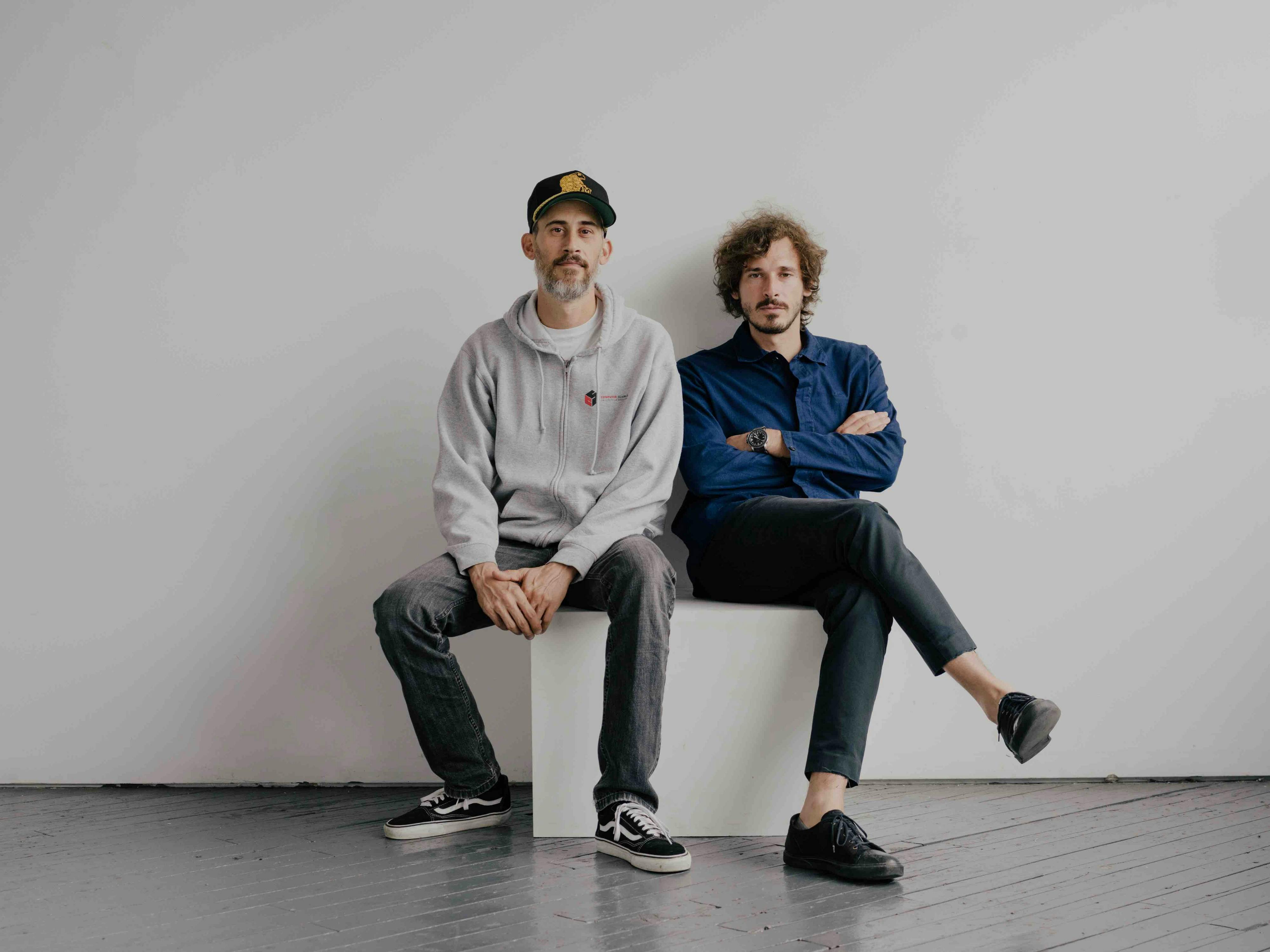SHARE
Plant Paper Is a Provocative New Company Looking Out for Your Butt

Lee Reitelman and Joshua Solomon Want to Change the Way You Think About Toilet Paper
|
Culture
Photographed by Daniel Dorsa
As appeared in Yes Plz Weekly Issue 004, December 17, 2018
On a sunny day in late August, Tonx and I jumped on the phone with Lee Reitelman and Joshua Solomon. We had heard of their new company, Plant Paper, through the tastemaking all-day breakfast joint Sqirl’s creative director Scott Barry (featured in Issue 003) who has a stake in the company and handles their design. Though I honestly thought that sustainable TP began and ended with Seventh Generation, Barry’s enthusiasm had me intrigued.
Reitelman, a N.Y.-based former chef and educator, and Solomon, a film and TV-producer who lives in L.A., struck on the idea after they did some reading on the origins of our current tree-based system. “Essentially, what we discovered is that it takes a lot of energy, chlorine, and formaldehyde to turn hard wood into soft paper, and it was never really done that way until the Scott brothers and Dupont Chemical got into the business.” Solomon tells us. Previous to the Scott brothers and their chemicals, most sanitary material came from plants like hemp and sugarcane, which require less water and chemicals to dissolve the bindings between fibers. “Hemp, surprisingly enough, used to be the source of pulp for toilet paper. The first commercial toilet paper in the US was produced by a guy named Dr. Gayetty, and it was made of hemp,” Reitelman says, adding that “the more we looked into it, the more we realized that tree paper should be and will be a thing of the past. It’s just so incredibly wasteful and destructive, not only for the environment but also for our bodies, and it doesn’t perform anywhere near as well as we think it does.”
Regarding that last point, Reitelman and Solomon are apostolic. They want Plant Paper to not only be the choice you make for the environment and your health, but because it’s the best option out there. “We were trying to make a product that was actually better and Lee and I got to the point where we were in Prius territory — where we had something that was as good as the toilet paper that was out there; the Cottonelle, the Angel Soft — but we really couldn’t do this until we had something that we thought was the Tesla, that was better all-around,” Solomon says, adding: “I think we’re all used to not being satisfied. We’ve gotten used to a pretty mediocre product.”
When I ask about the decision to bring in Scott Barry, who created Sqirl’s aesthetic including their award-winning 2016 cookbook Reitelman responds: “We think it’s essential for the toilet paper itself to be almost a design object — something that when you look at it, it makes you think about toilet paper in a completely different way.” He pauses for so long I think the call has been disconnected. “We’ve been asking ourselves for a long time what a beautiful roll of toilet paper would look like, and how we can present it in such a way as to make people recognize and appreciate the intentionality of its design. It needed to be the kind of thing where buying it makes you feel smart, makes you feel like you’re doing something that’s not only good but cool.”
“It needed to be the kind of thing where buying it makes you feel smart, makes you feel like you’re doing something that’s not only good but cool.”
To be fair, there are other, perhaps more beautiful hygienic paper goods out there. Renova is a Portuguese company that first came to my attention when a New York Times Magazine profile of Kris Jenner reported that she stocks the black variety. The company makes a plethora of richly colored rolls that they proudly state are made from “one hundred percent virgin pulp.” A fact which, understandably, gets under Solomon’s skin. In addition to saving trees, “part of the deal is making people aware that there’s thirty-seven gallons of water that go into every roll of tree paper and about a gallon of chemicals,” he tells us, adding, “Bleach and formaldehyde [which are used to make toilet paper] are known to cause UTIs and hemorrhoids and fissures in our bodies, but those are things that we’ve just grown accustomed to because we think that there’s no other way to do this.”
The provocatively titled article “Conscious consumerism is a lie,” raised a stir when it claimed, amongst other things, that “Small steps taken by thoughtful consumers — to recycle, to eat locally, to buy a blouse made of organic cotton instead of polyester — will not change the world.” The author, sustainability blogger Alden Wicker, premises her article on the concept famously coined by Ice-T: “Don’t hate the player, hate the game,” or, as long as a capitalist structure exists primarily to sell consumers goods we don’t need, no single choice we make will put a dent in the Moloch-like beast that is late-stage-capitalism. Wicker cautions that “Choosing fashion made from hemp, grilling the waiter about how your fish was caught, and researching whether your city can recycle bottle caps might make you feel good, reward a few social entrepreneurs, and perhaps protect you from charges of hypocrisy. But it’s no substitute for systematic change.” To temper the relentlessly depressing message of her piece, Wicker emphasizes that the system can, in fact, change, it just takes diverting the roughly thirty percent markup that you would pay for “sustainable” goods towards candidates and groups working to change economic policy, all of which requires less cynicism and offers less ego stroking than shopping at Whole Foods, say.
Reitelman and Solomon are more than aware of the current trends towards greenwashing and conscious consumerism, but insist that Plant Paper is more than just a feel good product. “If there’s enough momentum behind it, and enough people change their consciousness on this, it could make a really significant impact,” Reitelman says. “We can actually make the current situation, where we’re flushing twenty-seven thousand trees a day down the toilet, a thing of the past.”


SHARE
